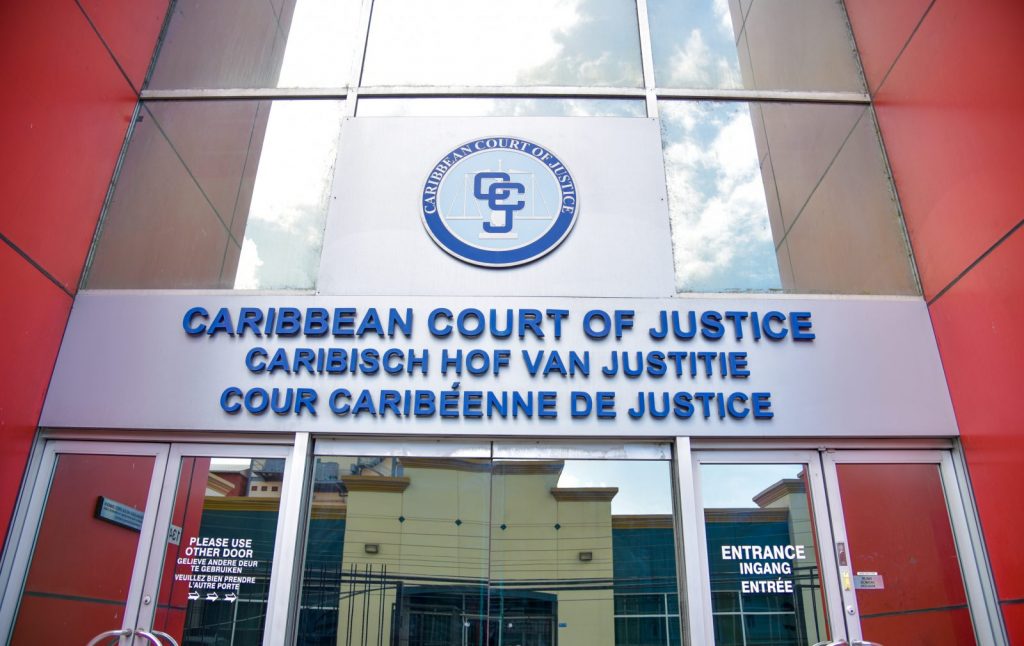The Caribbean Court of Justice (CCJ) dismissed an appeal filed by Guyanese citizen Ramon Gaskin challenging a local judgment that determined the Stabroek Block partners did not require separate licenses to operate offshore.
Gaskin’s initial application sought to quash the then Minister of Natural Resources’ decision to issue a petroleum license to ExxonMobil and also to Hess and CNOOC until they sought individual environmental permits. Guyana’s High Court dismissed the case but took 366 days to deliver the judgment.
Gaskin then filed an appeal which was also dismissed as the Court found that the minister’s actions were lawful and that the initial trial judge did not “unduly delay” in giving her decision. So, Gaskin sought recourse at the CCJ.
Campaigners lose court bid to cancel Exxon’s Liza 1 environmental permit | OilNOW
Seenath Jairam, Melinda Janki, C. V. Satram, Mahendra Satram, Ron Motilall, K. V. Jairam, and Sasha Sukhram represented Gaskin. The Ministry was represented by Edward Luckhoo, Deborah Kumar, Deputy Solicitor General, and Eleanor Luckhoo. Andrew Pollard and Nigel Hughes appeared for the Stabroek Block partners, while Sanjeev Datadin and Frances Carryl represented the Environmental Protection Agency.
The summary judgment was read by Justice Winston Anderson on June 26.
He noted the constitutional significance of environmental rights under Guyana’s Constitution, specifically citing Articles 25, 36, and 149J. These provisions elevate environmental protection to a crucial level, influencing the interpretation of environmental legislation. Under the Environmental Protection Act (EP Act), Justice Anderson ruled that obtaining environmental authorization is a prerequisite for the minister’s authority to grant a petroleum production license under section 35.
The judge underscored that the EPA must be assured of a developer’s capability to meet their responsibilities and comply with permit conditions when approving projects. Exxon, as the sole operator in this instance, was deemed capable of fulfilling these obligations under the EP Act. Consequently, Justice Anderson said the license was granted based on Exxon’s operational role, with Hess and CNOOC sharing joint and several liabilities for environmental responsibilities.
The granting of the Licence to CNOOC and Hess did not invalidate it for several reasons, according to the CCJ. the CCJ ruled that firstly, the requirements to obtain an Environmental Permit under section 14 of the EP Act were met when the permit was granted to the sole operator of the Liza 1 Project. Secondly, it aligned with international norms in the oil and gas industry where Exxon, as the operator, represented the joint venturers, with Hess and CNOOC included as financial partners to secure financing. Thirdly, all three respondents shared liability for environmental damage under joint and several liability provisions. Lastly, including Hess and CNOOC in the Licence did not increase environmental risks under the precautionary and avoidance principles.
Justice Anderson concluded that the Minister did not act unlawfully and found no grounds to address the amendment of relief sought. The appellant’s actions were seen as a public-spirited effort to uphold constitutional environmental protections, leading the judge to reject claims for costs against the appellant.
A fully copy of the judgment can be found here: https://ccj.org/wp-content/uploads/2024/06/2024_CCJ_14_AJ_GY.pdf



